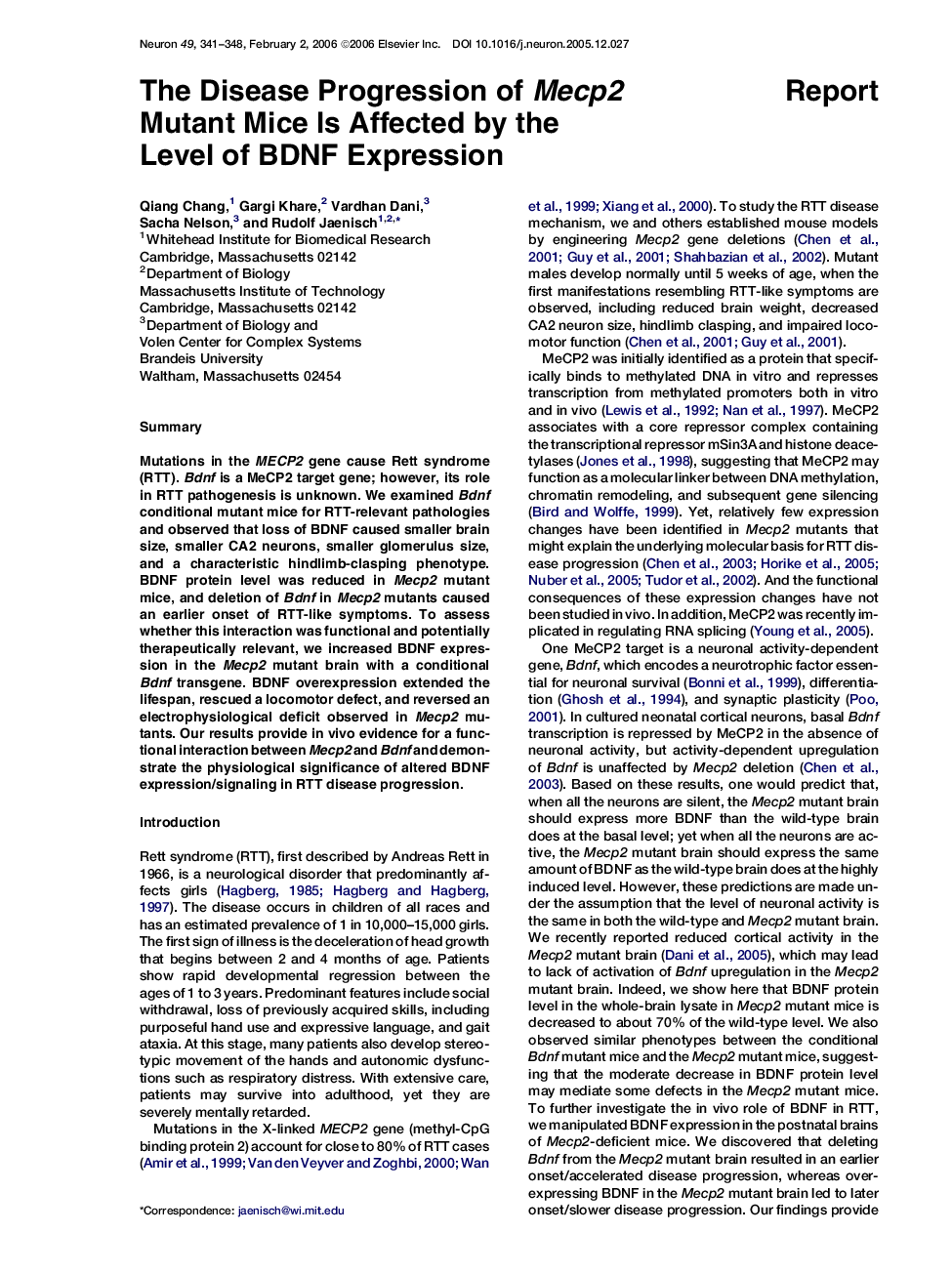| Article ID | Journal | Published Year | Pages | File Type |
|---|---|---|---|---|
| 4323384 | Neuron | 2006 | 8 Pages |
SummaryMutations in the MECP2 gene cause Rett syndrome (RTT). Bdnf is a MeCP2 target gene; however, its role in RTT pathogenesis is unknown. We examined Bdnf conditional mutant mice for RTT-relevant pathologies and observed that loss of BDNF caused smaller brain size, smaller CA2 neurons, smaller glomerulus size, and a characteristic hindlimb-clasping phenotype. BDNF protein level was reduced in Mecp2 mutant mice, and deletion of Bdnf in Mecp2 mutants caused an earlier onset of RTT-like symptoms. To assess whether this interaction was functional and potentially therapeutically relevant, we increased BDNF expression in the Mecp2 mutant brain with a conditional Bdnf transgene. BDNF overexpression extended the lifespan, rescued a locomotor defect, and reversed an electrophysiological deficit observed in Mecp2 mutants. Our results provide in vivo evidence for a functional interaction between Mecp2 and Bdnf and demonstrate the physiological significance of altered BDNF expression/signaling in RTT disease progression.
